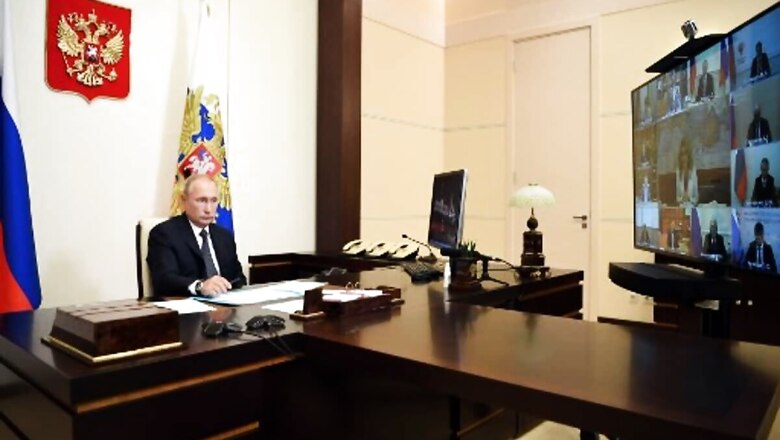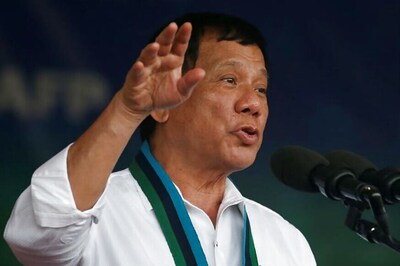
views
President Vladimir Putin on Tuesday declared Russia the first country to approve a coronavirus vaccine, but scientists and the World Health Organization (WHO) said it still needed a rigorous safety review. The vaccine has been named 'Sputnik' after the Soviet satellite.
Putin said the vaccine was safe and that one of his own daughters had been inoculated, though clinical trials were not yet complete and final stage testing involving more than 2,000 people was to start only on Wednesday.
Putin has pushed hard for Russia to be the first to announce a vaccine and officials dubbed it "Sputnik V" after the Soviet-era satellite that was the first launched into space.
"This morning, for the first time in the world, a vaccine against the new coronavirus was registered" with Russia's health regulator, Putin told a televised video conference call with government ministers.
"I know that it is quite effective, that it gives sustainable immunity," he said, adding that one of his two daughters had received the vaccine developed by the Gamaleya research institute in coordination with the Russian defence ministry.
"In this sense she took part in the experiment," Putin said, adding she had a slight temperature after a second injection and "that's all".
Kirill Dmitriev, head of the country’s RDIF sovereign wealth fund, said Russia had already received requests from more than 20 countries for 1 billion doses of the vaccine.
The development paves the way for the mass inoculation of the Russian population, even as the final stage of clinical trials to test safety and efficacy continue.
Countries sceptical
The speed at which Russia is moving to roll out its vaccine highlights its determination to win the global race for an effective product, but has stirred concerns that it may be putting national prestige before sound science and safety. Western scientists were sceptical, with some warning that moving too quickly on a vaccine could be dangerous, but Russia denounced criticism as an attempt to undermine Moscow's research.
Reacting to the announcement, the WHO's spokesman in Geneva Tarik Jasarevic said it was in "close contact" with Russian health authorities but that it was too soon for any WHO stamp of approval.
"Pre-qualification of any vaccine includes the rigorous review and assessment of all the required safety and efficacy data," he said.
Western scientists have previously raised concerns about the speed of development of Russian vaccines, suggesting that researchers might be cutting corners.
Many scientists on Tuesday warned of the risks of rushing to approve a vaccine.
"This is a reckless and foolish decision," said Francois Balloux of University College London. "Any problem with the Russian vaccination campaign would be disastrous both through its negative effects on health, but also because it would further set back the acceptance of vaccines in the population."
Meanwhile, Dmitriyev denounced the "coordinated and carefully orchestrated media attacks" designed to "discredit" Russia's vaccine.
"We should leave politics behind and enjoy this moment," he said. "We are not forcing this vaccine on anyone."
The pandemic has seen an unprecedented mobilisation of funding and research to rush through a vaccine that can protect billions of people worldwide.
The WHO last week urged Russia to follow established guidelines and go "through all the stages" necessary to develop a safe vaccine.
Sputnik V is a so-called viral vector vaccine, meaning it employs another virus to carry the DNA encoding of the needed immune response into cells.
Gamaleya's vaccine is based on the adenovirus, a similar technology to the coronavirus vaccine prototype developed by China's CanSino.
The state-run institute came under fire after researchers and its director injected themselves with the prototype several months ago, with specialists criticising the move as an unorthodox and rushed way of starting human trials.
Moscow has dismissed allegations from Britain, the United States and Canada that a hacking group linked to Russian intelligence services tried to steal information about a coronavirus vaccine from labs in the West.
(With inputs from agencies)

















Comments
0 comment